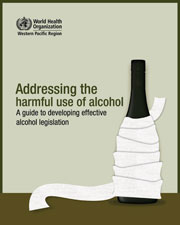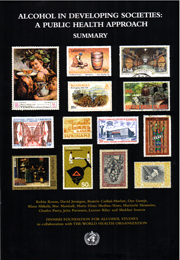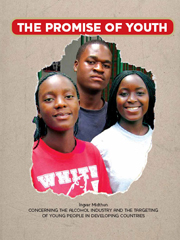
Alcohol policy training in Malawi and Botswana
Malawi and Botswana became the two first countries to test a new training package on evidence-based alcohol policies. Namibia will be the next country early in 2010.
The new training program has been developed by FORUT and Blue Cross Norway. The background for the initiative is that there exists a broad knowledge base on which types of interventions that are most effective to reduce alcohol-related harm. However, there is a severe information gap. The existing knowledge is not sufficiently distributed to those who need it most; policy makers, politicians, government experts, NGO leaders and the media. This is case for most countries of the world, probably all.
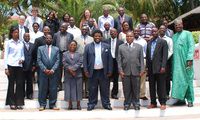
Picture to the right: All participants at the training program in Malawi with the Hon Minister Aaron Sangala in the middle of the front row.
This project has the intention of bridging the information gap by offering training to important stakeholders based on the international evidence-base on which are the most effective interventions against alcohol-related harm.
Before completing the first version of the training package Blue Cross and FORUT will run test sessions in three countries of Sub-Saharan Africa; namely Malawi, Botswana and Namibia. The first of the three pilot sessions took place in Malawi mid-November and was opened by the Hon Minister of Internal Affairs and Public Security, Aaron Sangala, MP. He appreciated that Malawi was chosen as the first country to test the new training program and made reference to alcohol-related problems that are of special concern for Malawi, like HIV/AIDS, gender-based violence and drinking among school children.
Hon Sangala said that the training program had come in the right time for Malawi, as civil society organizations and the Government of Malawi now have embarked on a national alcohol policy consultation process. He commended the civil society for taking this initiative, but the Hon Minister also challenged NGOs to interact with opinion leaders on all levels in order to rally support behind an evidence-based alcohol policy in Malawi.
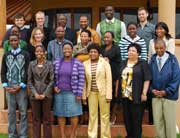
Picture above: Participants at the training session in Gaborone, Botswana.
The new training program builds on the evidence base developed by international networks of scientists. These include the technical reports sponsored by the World Health Organization; “Alcohol; No Ordinary Commodity” (Babor et al); “Alcohol in Developing Societies” (Room et al) and WHO Expert Committee on problems related to alcohol consumption (WHO Technical Report Series 944). A number of the experts behind this body of literature are serving on an advisory panel for the Blue Cross/FORUT training program, eg. Thomas Babor, Isidore Obot, David Jernigan, Neo Morojele and Robin Room.
Related articles
![]()
![]()
Developed with CustomPublish CMS by Nettinfo AS

